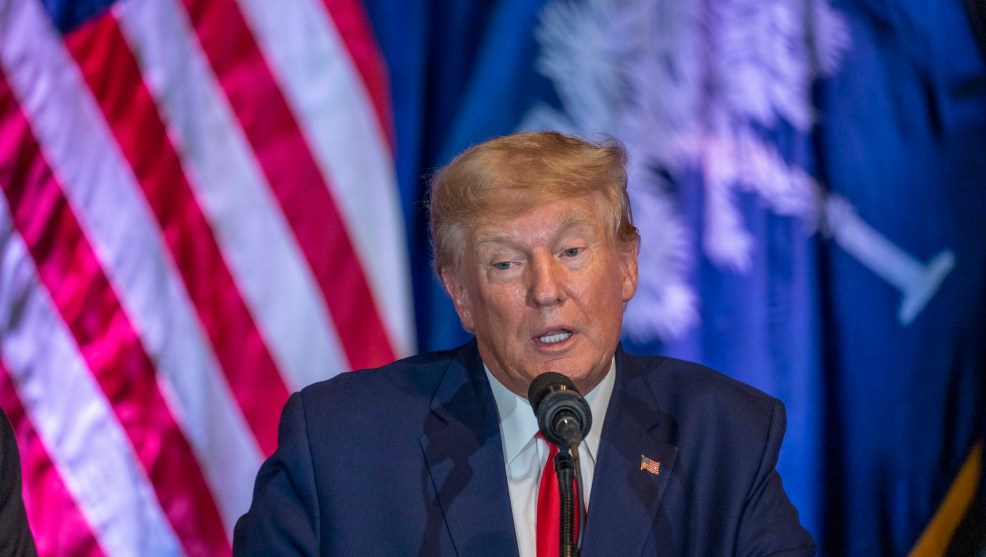
Former President Donald Trump speaks at a campaign event at the South Carolina Statehouse, Saturday, Jan. 28, 2023, in Columbia, S.C. Alex Brandon/AP
Fresh off securing convictions against the Trump Organization in a tax fraud case, Manhattan District Attorney Alvin Bragg is reportedly once again investigating Donald Trump over an alleged hush money payment made to adult film actress Stormy Daniels during the 2016 campaign.
The New York Times reported on Monday that Bragg’s prosecutors are preparing to present evidence to grand jurors in the hopes of bringing criminal charges against Trump personally. Trump’s longtime fixer, Michael Cohen, was seen going into Bragg’s office earlier this month, and the Times said in its report that numerous other potential witnesses have been contacted by investigators or were spotted going into the building where the grand jury meets. In 2018, Cohen pleaded guilty to campaign finance charges, admitting he paid Daniels $130,000 in 2016 to cover up an alleged extra-marital affair Trump had with Daniels in 2006. (Trump has denied having an affair with Daniels.) Cohen said he made the payments to help the Trump campaign and with Trump’s support.
Bragg’s predecessor, Cy Vance Jr., aggressively pursued possible criminal charges against Trump but was unable to pressure any top Trump Organization executives to testify against their boss. With Trump rarely putting anything in writing, witness testimony was seen as a requirement. Instead, Vance was able to obtain indictments against two Trump-owned companies and Trump’s longtime chief financial officer, Allen Weisselberg, on tax fraud charges. Vance stepped down from the DA job—which is an elected position—at the end of his term, and Bragg inherited the ongoing investigation. In his first months in office, he appeared reluctant to pursue charges against Trump personally and dropped the original grand jury investigation.
Bragg’s opinion on the case may have taken a turn as the prosecutions of Weisselberg and the Trump companies progressed. Weisselberg pleaded guilty, and in December, following a month-long trial, a jury quickly returned guilty verdicts on all counts against the companies. Prosecutors initially tried to avoid focussing on Trump personally, but by the end of the trial, they argued that even though Trump himself was not on trial, his company was built on a “culture of fraud.” Jurors who were interviewed after the case seemed to have bought that narrative and said they strongly disliked Trump’s attorneys.
Bragg sat in on key moments of the trial, and following sentencing earlier this month—during which the judge imposed the maximum fine of $1.6 million—Bragg hinted strongly that he was revisiting the idea of pursuing Trump.
“The sentencing today closes this important chapter of our ongoing investigation into the former president and his businesses,” Bragg told reporters at the time. “We now move on to the next chapter.”
He didn’t elaborate, but the new grand jury appears to be that next chapter.
















